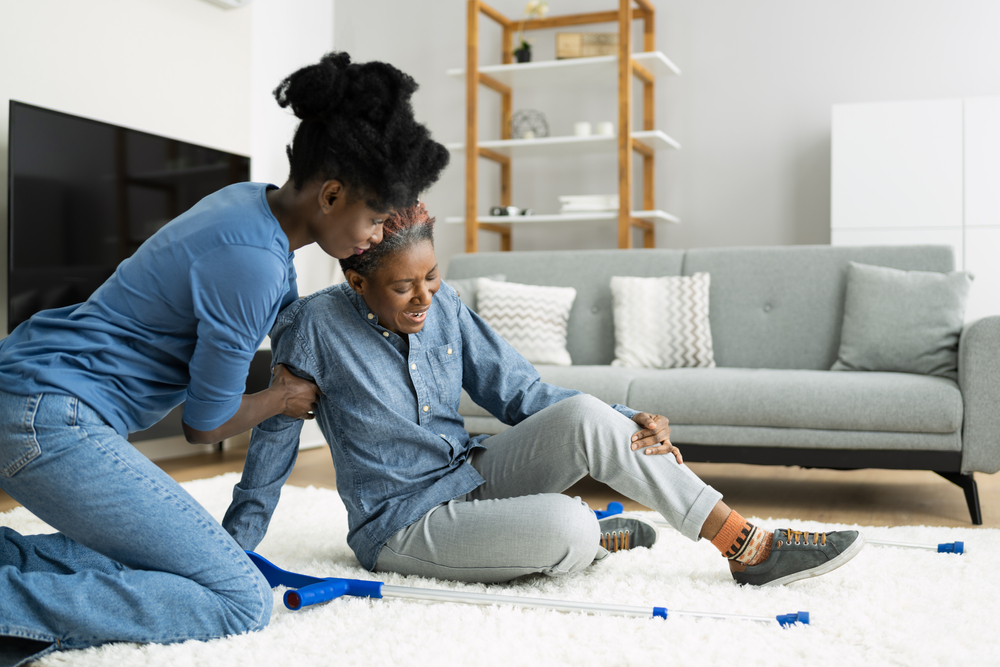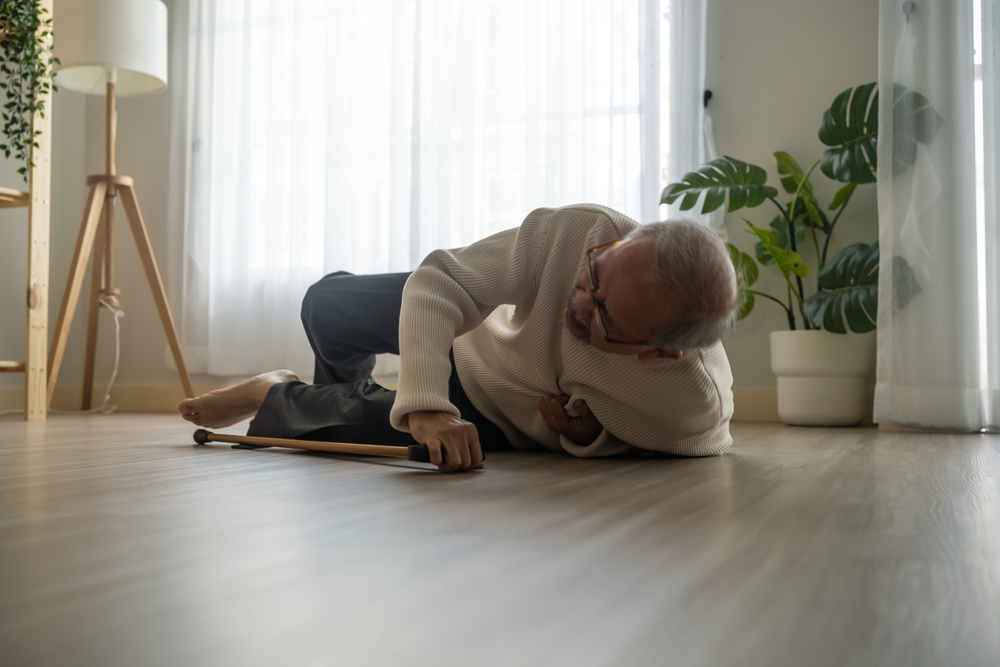Why do Some Elderly Adults Die After a Fall?
Category:

The risk of falls for elderly adults is a serious matter. Statistics show more than one out of four elderly adults fall each year. The consequences of falls in the elderly tend to be more severe and more concerning than those for a younger person. Sometimes a fall can even result in death. So what makes falls such a serious concern for the elderly?
Effects of a Fall on the Elderly
The most obvious effect of a fall is an injury. Common injuries from falls for the elderly include hip fractures and head injuries, and can also include broken arms and legs. According to the CDC, each year, three million older people are treated for falls in emergency rooms. Approximately 800,000 of those end up hospitalized, sometimes involving lengthy stays or checking in to the ICU. Around 300,000 elderly people are hospitalized for hip fractures, most of which occur from falling sideways.
While four of five people who fall do not suffer serious injuries, the mental consequences of falls in the elderly can be just as challenging as a broken bone. An elderly person who falls, even without incurring serious injury, often becomes afraid of falling again. They may limit their daily activities as a result. This becomes a type of catch-22. The less a person moves, the weaker they will become, which increases the likelihood of falling again.
Download a Free Guide to Home Care
Why Do Elderly Adults Die After a Fall?
Death after a fall in the elderly becomes more likely because it takes so much longer for an elderly person to recover. One study conducted by the University of Rochester Medical Center indicated that “Elderly patients remained in the hospital and the intensive care unit longer and only 22 percent were able to function on their own after they left the hospital, compared to 41 percent of non-elderly patients.” We know how important independence is to our elderly friends and family members. Losing the ability to function on their own after a fall is not just a blow to an elderly person’s mental health, but can also lead to multiple falls and general health decline.
How to Prevent Falls in the Elderly
The best way to prevent elderly deaths from falls is to take steps to avert falls. You can find a complete list of tips to prevent falls here: Elderly Fall Prevention: Complete Action Plan. In the meantime, here are some easy things you can do to help you and your elderly loved ones feel safer and less likely to fall:
-
Talk to your doctor. He can give you a risk assessment for falling, and also determine if one of your medications may be making you dizzy or more likely to fall.
-
Try exercise to improve leg strength and balance. You can find some simple and fun exercises specifically for the elderly here.
-
See an eye doctor and, if needed, make sure your glasses prescription is up to date.
-
Consider adding some safety features to your home, like railings around doorways that have a step and in the shower.
The thought of complications of falls in the elderly is scary. So just remember, they can be prevented, and you can help keep your elderly loved ones happy and safe.
Subscribe
Date: 2020-11-30
Category:


